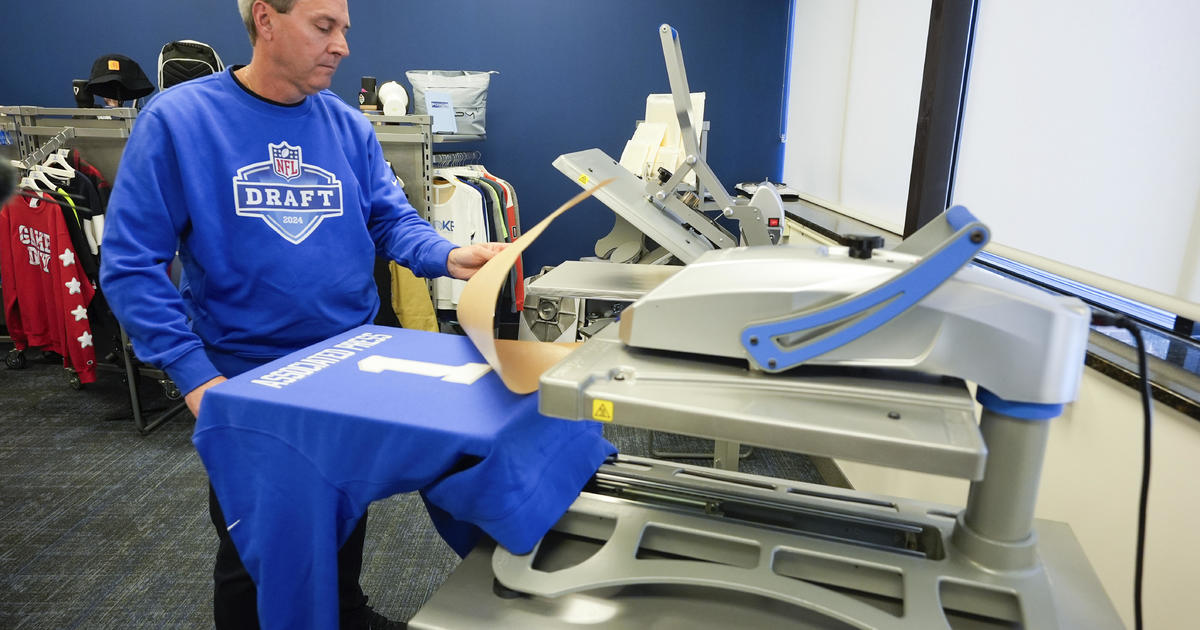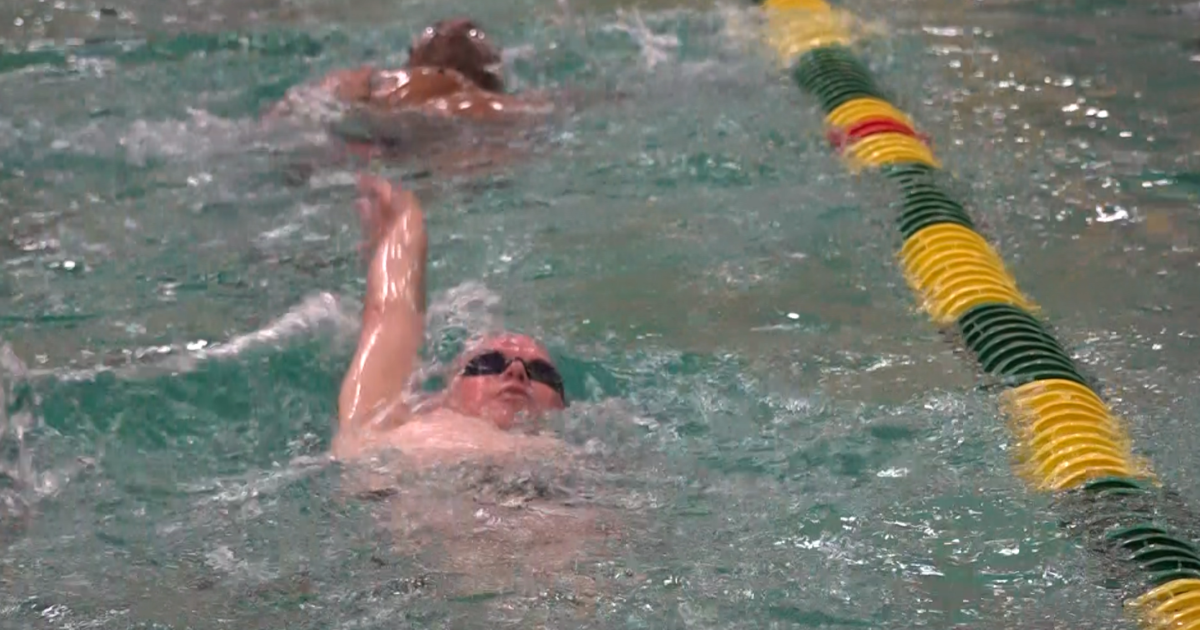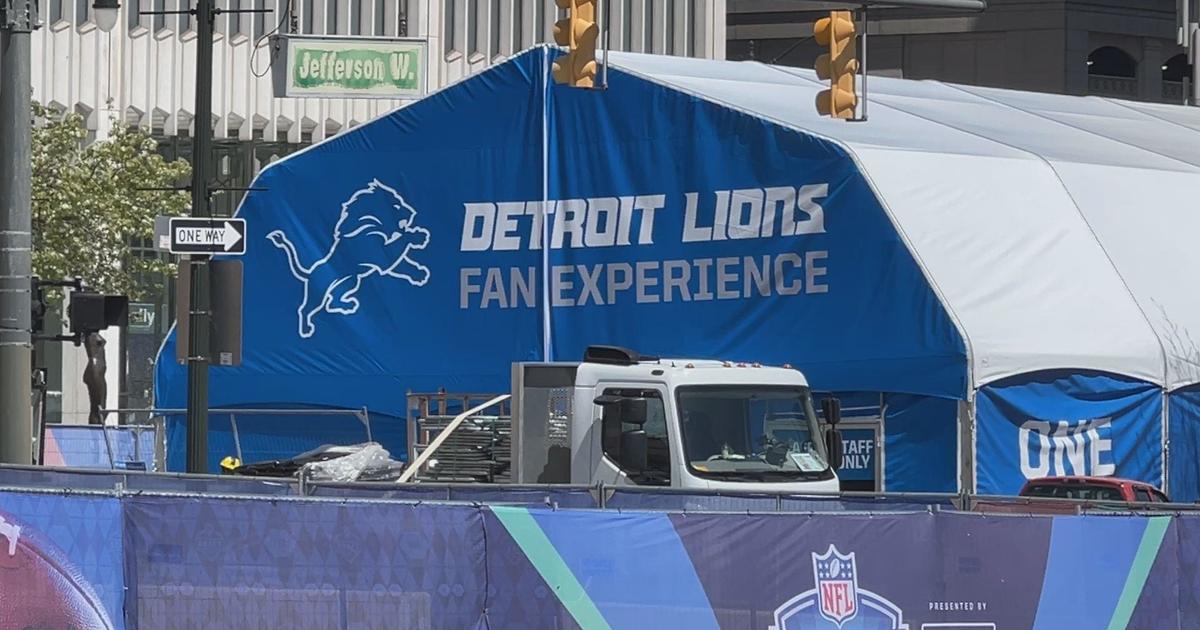Column: The Longest Minute In A Long Comeback
JIM LITKE,AP Sports Columnist
The Stanley Cup is back in the city of big shoulders and short memories, delivered by a Chicago team that featured neither.
The Blackhawks started the lockout-shortened NHL season so fast, they were the team to beat for months. But they still couldn't outmuscle anybody. They were all about speed and skill, advantages that get squeezed tighter, round by round, in the defensive vise of the postseason.
They had to find another way to play with 1:30 left Monday night in Boston, when goalie Corey Crawford headed for the bench to bring on another attacker. Turns out the Blackhawks do desperation well, too.
"That's kind of the way you had to score this whole series," coach Joel Quenneville said after Bryan Bickell and Dave Bolland banged in a pair of gritty goals during a 17-second span to stun the Bruins.
Yet even after Bolland's putback of a rebound — off the goal post, no less — slipped by sprawling Bruins goalie Tuukka Rask, there were still 59 seconds left on the clock.
"An eternity," Patrick Kane, who won the Conn Smythe Trophy as playoff MVP, called it.
"Nerve-wracking," captain Jonathan Toews added.
"Things were happening so fast," recalled winger Patrick Sharp, "I looked up at the clock and knew it was going to be the longest minute of the season."
Better a minute like that one than all the minutes Blackhawks fans ignored just five short years ago. It wasn't that long, after all, that the current toast of the town was just toast.
Toews, 25, and Kane, 24, came along in 2006 and 2007, when the Blackhawks were already beginning their bounce back from the bottom. Just a few years before that, the Blackhawks were roundly derided as the worst franchise in pro sports. At 32, Sharp is one of the longest-serving veterans of the team's core. He's made it a point not to let anybody in the locker room forget that.
After Chicago's 3-1 victory in Game 5, Sharp sat at his cubicle exhausted and stories rolled out about the bad old days.
"We'd get, maybe 10,000 fans, and in our building that felt like empty. I could pick friends of mine out in the crowd. Some nights, they'd have their own section," he laughed.
"We used to have business cards with a website address and we'd tell people, 'Go there and you'd get two free tickets.' People wouldn't even take the cards!"
The 2004-05 lockout hurt hockey, but the rule changes that opened up the game helped the Hawks.
Then-general manager Dale Tallon finally quit pursuing draft picks and free agents with wide bodies and narrow skill sets. Suddenly, guys like Sharp and slick-passing defensemen Duncan Keith and Brent Seabrook had targets up ice with the imagination and ability to finish plays.
Except at first, nobody noticed. A decade or so of continuing futility — in a city where the gold standard is the Cubs at a century and counting — kept all but the hardcore fans away.
Tight-fisted owner William "Dollar Bill" Wirtz stubbornly kept games off TV, and drove off legacy names like Bobby Hull and Stan Mikita. Then Wirtz died in September 2007 following a brief battle with cancer and the bitterness spilled out in one sweeping gesture.
During a moment of silence for Wirtz at the home opener, the crowd responded with boos. The Hawks made the postseason after a six-season hiatus, but those fans who chose self-exile only grudgingly began trickling back. It wasn't until Wirtz' son, Rocky, was in control for a full season — putting the games back on TV, bringing guys like Hull and Mikita back as ambassadors and putting up statues outside the United Center — that all was forgiven, and then some.
Average attendance jumped 7,000 seats by the end of the 2008-09 season. The product on the ice was reflected in the fast-climbing value of the franchise. The season after that brought the team's fourth Stanley Cup title, giving one of the NHL's "Original Six" some recent history worth boasting about.
The realities of the salary cap, though, dictated what happened next. The Blackhawks had to unload or choose not to resign nine players on that team, electing instead to lock up Toews, Kane, Keith and a handful of others.
They got ambushed in their first postseason outings the next two years — something the Blackhawks remembered when they were down 3-1 in a series against Detroit in an earlier round, and again against Boston as the clock ticked down the final few seconds.
"You win it once and you think you're going right back to the Stanley Cup finals the next year after that," Toews said. "Two first-round exits for us last couple years will make you realize how tough it is to get here."
The Blackhawks have become the first team to win a second Stanley Cup in the salary-cap age, a bit of smart spending that would have pleased old man Wirtz. And they did it as the last team standing from a final four that featured the last four cup winners, playing wide open or gritty as each game or each shift demanded.
As talk of a third Cup and even the dreaded "dynasty" began making the rounds, Quenneville put up his hand and asked for a moment where he didn't have to recall what was behind or worry about what was ahead.
"I'm going to enjoy this one first," he said, "and have fun with it. And then we'll talk about that one."
___
Jim Litke is a national sports columnist for The Associated Press. Write to him at jlitke@ap.org and follow him at Twitter.com/JimLitke.
(© Copyright 2013 The Associated Press. All Rights Reserved. This material may not be published, broadcast, rewritten or redistributed.)



